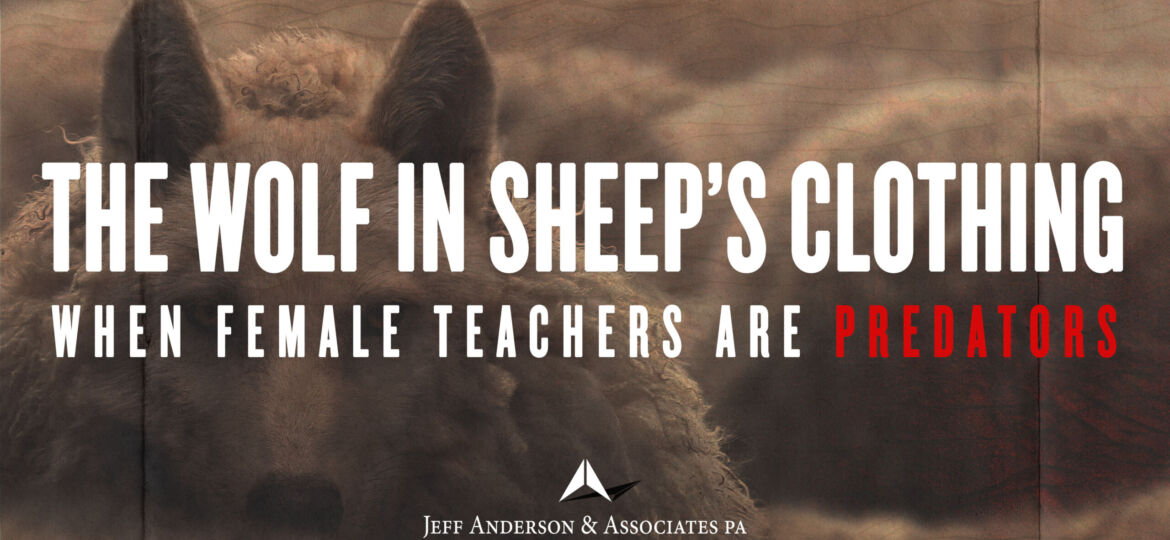Recently, a Wisconsin female elementary school teacher was arrested for what police are calling an “inappropriate relationship” with an 11-year-old student.
We don’t call that a “relationship” – we call it predatory grooming and sexual abuse.
It gets worse. According to press reports, more than 25 female teachers have been arrested for sexually abusing students in 16 states in the past year alone. In one recent example, Caitlin Kalia Thao, a substitute teacher in Minnesota, was charged with sexually assaulting a 17-year-old boy. The victim confirmed Thao sexually assaulted him in a middle school classroom. The school’s executive director also said it isn’t the first time he’s received complaints from people regarding Thao’s alleged “inappropriate behavior” with students. In another recent case, Laura Whitehurst, a California teacher, became pregnant by a student she was convicted of sexually abusing. Whitehurst pleaded guilty to unlawful sex with three former students.
What is Behind This Disturbing Dynamic?
Let’s look at a little history.
In the 1990s, then-elementary school teacher Mary Kay LeTourneau made headlines when she was sent to jail for sexually abusing her elementary school student Vili Fualaau multiple times, even after she was arrested. Eventually, she became pregnant, and when released from jail, she and Fualaau married and raised their two daughters. They divorced in 2020. According to friends, Fualaau is still processing the grooming and abuse.
In 2023, a movie called May December was released. The film stars Natalie Portman as an actress who travels to meet and study the life of Gracie, the controversial woman (Julianne Moore) she is set to play in a film—a woman infamous for the 24-year-long relationship with her husband Joe (Charles Melton), which began when he was 13 years old and she was 36. It has been confirmed the movie was inspired by Mary Kay LeTorneau. There has been an influx of movies and shows covering the challenging topic of child sexual abuse. In addition to May December, The Tale and A Teacher delve into the topic of adults sexually abusing children, and sometimes, their students. Is this media coverage glamorizing and sensationalizing abuse, or is it educational and breaking down the stigma of a complicated topic? The answer to this is somewhat subjective and complex.
The law acknowledges that when an adult female preys upon a minor male child, she commits the crime of sexual abuse. But society is taking time to catch up. Stereotypes such as “hot for teacher” and being “broken in” by a woman (a phenomenon boasted about by celebrities Michael Caine, Prince Harry, Cole Sprouse, and Daniel Radcliff) glamorize a woman’s sexual assault of a boy as a “rite of passage”.
What these stereotypes ignore, however, is that the aftermath one suffers when one is a boy sexually abused by a woman is just as traumatic as a child’s abuse by a man. The boy is a victim of sexual violence and suffers the same adverse psychological, physical, social, and economic effects as a boy abused by a man.
“Social media can serve to blur the lines between the student-teacher relationship, which can in turn open the doors to more inappropriate outcomes.” – Dr. Michael Oberschneider, Child Psychologist, Ashburn Psychological Services
How Prevalent is Sexual Abuse by Women?
Statistics from the U.S. Department of Justice tell us that less than 1% of sexual abuse of minors is perpetrated by women, but that number could actually be much higher. Why? Because boys sexually abused by women often don’t recognize it as abuse. This may mean the victim struggles to get to the root cause of their trauma—because although the abuse was the cause, male victims abused by women are constantly told that they “got lucky.”
How Can We Confront and Prevent This?
We will see more and more reports of abuse by women because parents, teachers, and law enforcement are finally realizing that this kind of abuse IS sexual violence and causes harm. Cases that would have been ignored or pushed aside are now being pursued because society and parents are better equipped to recognize signs of a potential predator.
We can stop the cycle by talking to our children about sexual abuse and telling them that yes, adult women CAN sexually abuse boys. We need to educate our communities to report these crimes so that the behavior is no longer quietly endorsed and boys are no longer silenced.


